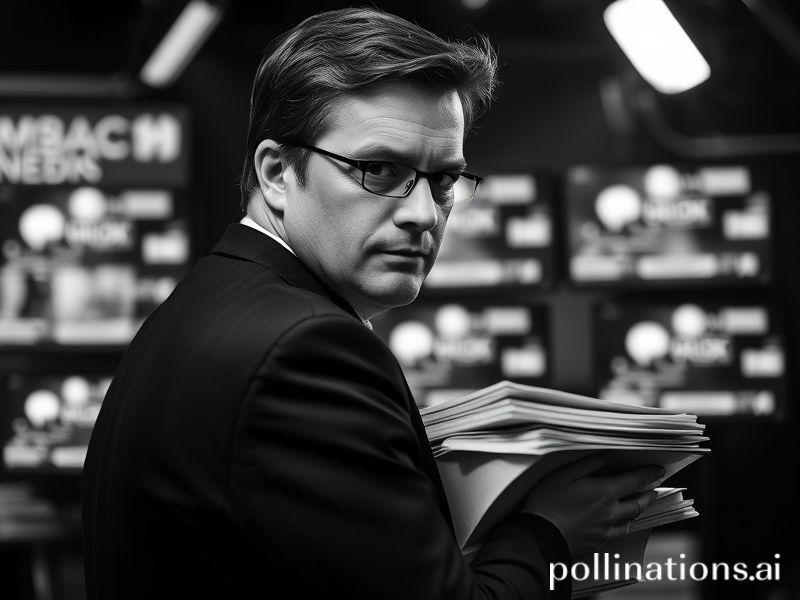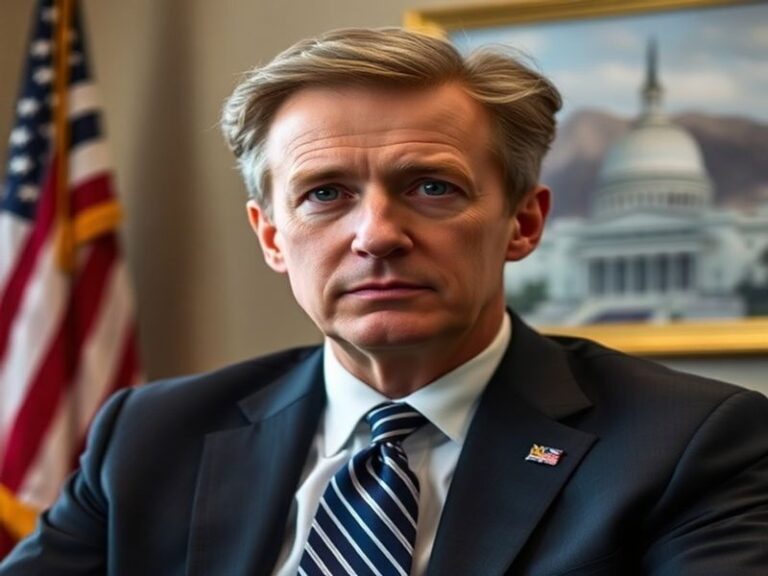How Lawrence O’Donnell Became the World’s Favorite American Doomsday Clock
Lawrence O’Donnell, the gravel-voiced Irish-American scold who haunts MSNBC’s 10 p.m. slot, is usually filed under “domestic cable curio” by foreign editors already nursing headaches from Trump indictments and TikTok bans. Yet from Singapore trading floors to São Paulo newsrooms, the man has become an unlikely atmospheric gauge for the American empire’s mood swings. When O’Donnell’s eyebrows arch so high they threaten low-orbit satellites, traders in Frankfurt quietly dump dollars. When he mutters “this is not normal” for the 73rd time in a week, bond desks in Hong Kong brace for another ratings-agency tantrum. The world, it turns out, has learned to read the O’Donnell barometer the way sailors once studied red skies at morning.
The joke is that O’Donnell, a recovering Hollywood writer who once scripted “The West Wing” in a more optimistic century, now performs nightly autopsies on that same liberal fantasy. Overseas, his ritual—half Harvard debate club, half Gaelic hurling match—functions as a darkly comic civics lesson for anyone still wondering how a republic founded by 18th-century pamphleteers ended up as binge-watchable tragicomedy. In Nairobi bars, expats sip Tusker and place bets on how long he can maintain a facial expression of controlled apoplexy. In Seoul cafés, graduate students annotate his monologues like Talmudic scholars parsing the Book of Jeremiah, if Jeremiah had a TelePrompTer and commercial breaks.
What the planet finds most instructive is O’Donnell’s insistence on parliamentary procedure while Rome, metaphorically speaking, installs another emperor via Twitter poll. Europeans, who surrendered their own empires decades ago and now outsource their defense anxieties to NATO PowerPoint slides, watch him brandish Senate precedent like a rosary against werewolves. The gesture is simultaneously admirable and pitiable—like watching a maître d’ polish silverware on the Titanic’s promenade deck. Latin American viewers, veterans of coups both hard and soft, recognize the tone of a man who still believes rules matter even after the referees have been paid off.
The darker humor lies in the export value of O’Donnell’s nightly lament. American decline is now the world’s binge-worthy Netflix genre, and O’Donnell plays the exhausted narrator who knows whodunit but must keep talking for seven more commercial segments. His ratings spike whenever the Supreme Court issues another 6-3 masterpiece of originalist fan fiction; international markets treat these surges as contrarian indicators. If O’Donnell goes hoarse denouncing a debt-ceiling “deal” that merely postpones the apocalypse to next fiscal quarter, the yen perks up on the assumption that American self-harm remains reliably theatrical rather than immediately lethal.
O’Donnell’s own biography—Georgetown, Harvard Law, Capitol Hill staffer, then the lucrative apostasy of television—mirrors the broader American trajectory from earnest republic to spectacle. The Irish surname that once signaled immigrant striving now headlines a show beamed to U.S. embassies whose marines watch it behind bulletproof glass. Somewhere in the Hague, a war-crimes prosecutor taking a cigarette break might catch O’Donnell’s closing segment and feel a twinge of professional kinship: both men labor to hold villains accountable using systems the villains have already monetized.
Conclusion: The world doesn’t tune in for solutions; it tunes in for the exquisite agony of watching someone still believe solutions exist. When O’Donnell signs off with his trademark “This is my last word on the matter,” foreign audiences know it isn’t. Tomorrow there will be fresh outrages, higher eyebrows, and another reminder that American exceptionalism now chiefly excels at exporting its nervous breakdown in HD. The joke, ultimately, is on the rest of us: we complain about the show but never change the channel, because deep down we fear the day Lawrence O’Donnell runs out of words—and the empire runs out of time.







